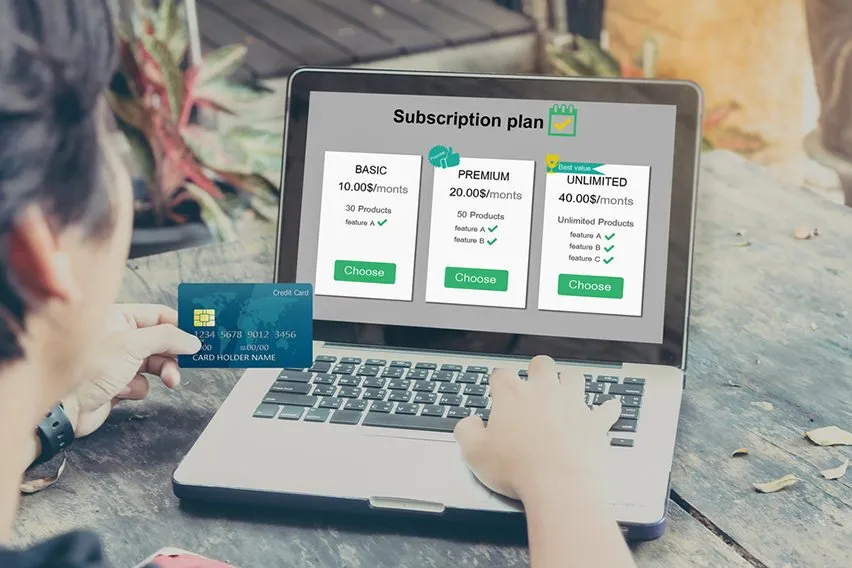How to Respond to a Performance Improvement Plan (7 Steps)

Learn how to respond to your performance improvement in the best possible way!
No one likes to hear that they could do better at their job. But this is just a bump in the road. A performance improvement plan is not the end of the world. Nor is it a reflection of your full potential in your role within the company.
It’s easy to take a little ego bruise and be defensive when performance improvement plans arise. Don’t. Instead, this step by step plan will help you respond to this minor setback with grace.
Here’s What We’ll Cover:
What Is a Performance Improvement Plan?
How to Respond to an Employee Performance Improvement Plan
What Is a Performance Improvement Plan?
A performance improvement plan is a summary of where you are falling short of expectations in your role. It should tell you:
- The expectations for your job role
- Where you are falling behind in your performance
- Steps to improve your performance
- The consequences if you don’t make improvements during your evaluation period. This could mean a termination of your contract or other disciplinary action

The first thing to note is that a performance improvement plan or PIP cannot and should not be a surprise to you. Your manager can’t generate one out of thin air with no prior warning. They should be keeping in touch with you throughout your development as an employee in your company and let you know what’s going wrong.
If a PIP comes out of nowhere, consult your HR team or higher management. Your manager should be supporting you throughout your employee development.
The second thing to note is the nature of the notes on your PIP. While it is overall negative feedback, it should be constructive feedback. Notes that help you grow, not make you feel small.
How to Respond to an Employee Performance Improvement Plan
1. Is This the Right Role or Right Workplace for You?
This is quite a confronting question, but I don’t mean it to be. Sometimes performance improvement plans illuminate something we have been ignoring.
It could be to do with your management. Does the PIP include things that you don’t believe are true? Does it reflect some animosity between you and your manager? Does it include things that you cannot or are unwilling to change?
Or your performance plan could show you some deep-seated issues with the job that you haven’t faced yet. Are you unconsciously negligent because you don’t want to be there? Are you truly happy in the role? These are big questions with no-so-obvious answers.
Read your PIP carefully. What is it truly saying to you? Is this the right workplace and role for you or is it time to move on? Only you will know the truth.
2. Take Responsibility
If you’ve decided that you want this job, it’s time to own up. Where have you been slipping?
Listen intently to your manager’s suggestions and keep your ego in check. To truly develop as an employee it’s good to take responsibility for where you are lacking. Emotions can run high when you are reading a report about how you might be a bad employee. Again – deep breaths.
It’s not an easy thing to do but you can’t skip this step and succeed!
3. Set Actionable Goals
Performance improvement plans should outline actionable targets. You may still need to customize these goals to an extent. A broad vacuous goal like “improve attention to detail” is not all that helpful. It’s a north star but it’s not actionable in itself.
Review the goal and see how you can make it as concrete and workable as possible. For “improve attention to detail” you might list:
- Create a review checklist to look at before I hand in reports
- Download spellcheck and grammar apps
- Have an accountability buddy to review large projects
Itemize your own goal list to make the PIP tasks more manageable. You can speak to your manager to help you do this too.
4. Double Your Working Effort
You’ve reviewed the plan and have reframed the goals to suit you. Great!
The first commitment you can make to prove to your manager you’re all in is time. Doubling your time commitment shows your superiors that you are dedicated to getting things right.
This could mean:
- Working a few extra hours
- Declining happy hour invitations (even though work drinks are the best!)
- Increasing your work output e.g sales calls, emails etc
- Adopting good, visible working habits
This is the time to really put the work in. Productivity through the roof. At your desk on time. Stay an hour later to get things done.
I’m not suggesting that you forfeit family time or time off. These things won’t necessarily improve performance anyway. Burning yourself out will make matters worse.
But a little additional time in the office may help show your dedication.
5. Ask for Help
Your boss, lead reps and mentors are there to help you. Don’t struggle on your own without mentioning anything. The greatest sign of strength is the willingness to reach out when you need to.
Often, the things we get wrong are due to misunderstanding. Checking in with your mentors and lead reps on things you struggle with can help iron out the kinks.
6. Check-in Regularly
Make a point to check in with your boss regularly on the progress of your PIP. It will show them that you are dedicated to implementing the suggestions they’ve made. It also shows that you are proactive. You’re not waiting for your manager to tell you that you’re doing well. You are actively checking.
Of course, there’s a point where this becomes annoying. Go for the “show, don’t tell” approach 90% of the time. But perhaps weekly or bi-weekly check-ins with your manager will help keep you on track.

7. Stay Positive
This is probably where you are tempted to click off. And yes “stay positive” is a vague and fluffy term, but stay with me.
We can both agree that words like “poor performance” are a punch to the gut.
This process of being reviewed on your job performance is not fun. If you have genuinely caring and compassionate managers, it’s not fun for them either.
It can be damaging to your self-esteem to hear that you aren’t doing well at work.
The best way to achieve the goals on your PIP is to maintain a positive attitude. Nothing is too difficult for you. And if it is, ask for help or speak to your manager about making achievable goals. Above all, your can-do attitude will shine through. Even if you don’t hit every goal on the list.
Key Takeaways
You have been given an employee improvement plan because there is some performance issue in your work. To truly get better in your role, take a deep breath. You are making strides just by researching and reading this article.
This is not the nail in the coffin for your career. This is an opportunity to show your worth.
If you only take away one item from this list, let it be this: attainable goals are the best way to navigate any feedback. Turn it into an action plan and you’ll surely succeed.
For more guides like this one, head to our resource hub!
RELATED ARTICLES

 What Is Subscription Management? 4 Best Software
What Is Subscription Management? 4 Best Software 5 Best Business Plan Consultant Templates
5 Best Business Plan Consultant Templates What Are Performance Metrics? Definition and Examples
What Are Performance Metrics? Definition and Examples What Is an Enterprise Management System? An Overview
What Is an Enterprise Management System? An Overview What is a 9/80 Work Schedule? Pros & Cons
What is a 9/80 Work Schedule? Pros & Cons